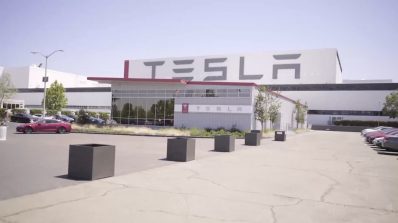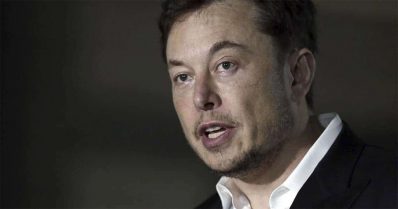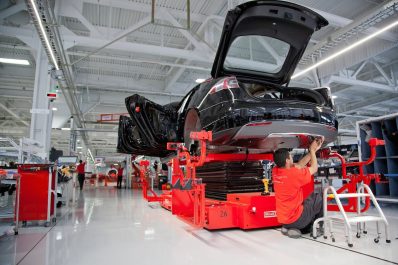A black former Tesla employee received a $1 million award from the automaker wrapping up a lengthy arbitration case against the company.

Melvin Berry challenged the EV manufacturer after supervisors failed to respond when he complained about being called the “N-word” and having Nazi swastikas and other hateful graffiti posted around Tesla’s Fremont, California assembly plant.
“I hope the world knows that an arbitrator found Tesla treats its employees like this,” the 47-year-old Berry told the Bloomberg News in a telephone interview.
One of many cases
Tesla has faced complaints from a number of employees about several issues, including discrimination, in recent years. The company has repeatedly and vehemently denied there are problems with racism in its workplace, in 2017 issuing a statement that it stands “absolutely against any form of discrimination, harassment, or unfair treatment of any kind.”
As has become the norm for the automaker, it did not respond in any form to a request for comment by TheDetroitBureau.com.

Berry’s case is unusual in several respects: both for the size of the settlement, which Tesla now has paid, as well as the fact that details have gotten into the public record. Arbitration cases are normally handled quietly, results seldom released. But experts suggest that settlements seldom run to six figures.
The vast majority of the $1.02 million award covers attorneys’ fees and legal costs, Bloomberg reported, though Berry was given $266,278.50 in damages, including $100,000 for emotional distress.
The confidential ruling became a matter of public record because Berry’s attorney had to file in court to get Tesla to pay the award.
Arbitration under fire
The use of arbitration has become commonplace in the U.S. today, corporations frequently requiring employees, as well as customers, to agree to the practice before conducting business. Proponents of arbitration claim it makes it easier to reach a settlement and reduces the sometimes egregious awards that juries can order. Critics counter that individuals often find it more difficult to press claims, are less likely to win compensatory awards and, by operating in secrecy, companies can hide ongoing problems, whether with race or sex discrimination or safety issues.

“The reason why you do it is, if you don’t sign it, you don’t get the job,” Berry said. “That’s the Catch-22.”
In her ruling, arbitrator Elaine Rushing noted that “Case law is clear that one instance of a supervisor directing the N-word at a subordinate is sufficient to constitute severe harassment.” But she found numerous problems with the way Berry was treated and how Tesla subsequently responded to his complaints. Among other things, after he reported the ongoing issues, the carmaker “forced (him) to work longer hours and push a heavier cart.”
Berry said he is taking time off in the wake of the May 12 ruling and subsequent payout. He plans to leave the auto industry and set up his own media company.








He realistically lost this case. His layers got roughly 3/4 of the settlement monies, he is essentially blacklisted from the auto industry, after he pays taxes he is left with roughly $150K? And at the end, Tesla will continue on as “normal”.